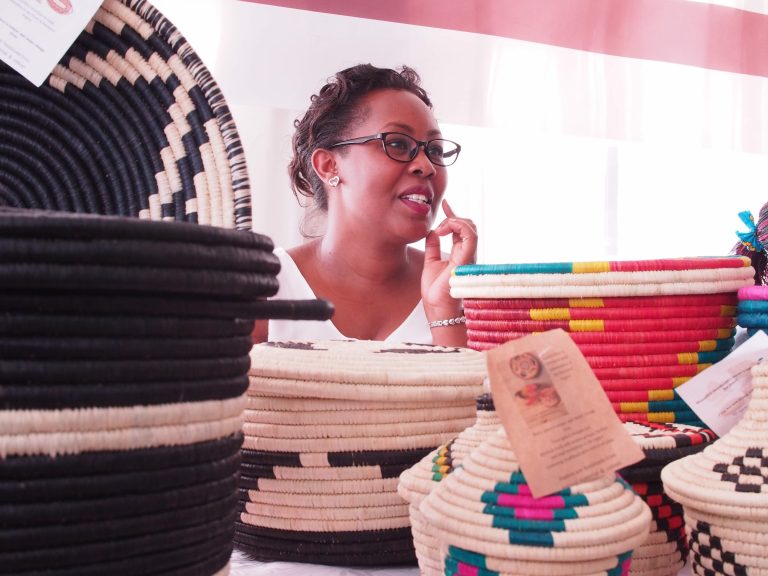On her walk home years ago in Fort Portal, Uganda, Anne Kabahuma noticed something familiar about the children playing by the side of the road.
“They were the children of my classmates in school,” Anne says. “They were there because their parents didn’t have enough money to put them in school.”
Anne remembered, too, that her classmates, these children’s mothers, were also skilled in weaving traditional baskets for their homes.
“I wondered in that moment, ‘What if we could make use of those baskets?’” Anne said. “‘What if we could sell them? And could that get these kids off the street?’”
Anne, now a Mandela Washington Fellow, founded the Tooro Gallery in Fort Portal to do just that, giving women a platform to build and market their products abroad.
 “We started by working with women’s organizations in the country’s villages,” Anne says. “We then trained women to weave unique baskets and design distinctive ceramics that met official standards. Finally, we helped them to present and market their products to an international audience.”
“We started by working with women’s organizations in the country’s villages,” Anne says. “We then trained women to weave unique baskets and design distinctive ceramics that met official standards. Finally, we helped them to present and market their products to an international audience.”
Among the communities Anne works with most often are those in the Rwenzori region in western Uganda, known for its intricate basketwork.
“We wanted to give these traditional designs a modern touch,” Anne says. “We did so by adding new dyes and forms to existing patterns.”
In her work with artisans, Anne goes to great lengths to ensure that the products she markets meet international standards, namely those outlined in the African Growth and Opportunity Act (AGOA).
It’s the standards outlined by AGOA, Anne explains, that afford local business owners the opportunity to market their products abroad.
Among the principles Anne follows are not using child labor and being as transparent as possible about her business practices.
 Anne encourages others interested in reaching international audiences to first familiarize themselves with AGOA guidelines, such as those outlined in these country-specific toolkits .
Anne encourages others interested in reaching international audiences to first familiarize themselves with AGOA guidelines, such as those outlined in these country-specific toolkits .
Equally important is designing a unique product, Anne stresses, one that would differentiate their business when they market goods abroad.
“Your product needs to be unique,” Anne says. “It has to really represent you in AGOA. You can differentiate your product by branding it in a beautiful way or by putting a compelling story behind it.”
“Marketing businesses to foreign audiences also gives you an opportunity to discover what people like, to understand them better,” Anne adds.
That process of understanding market tastes and working closely with artisans has underlined for Anne that each and every person has something of value to share; the trick is discovering that wisdom and sharing it with others.
“Every day I meet women who have never been to school but who make such beautiful baskets,” Anne says. “By helping them to market their products, we are giving them a future.”
